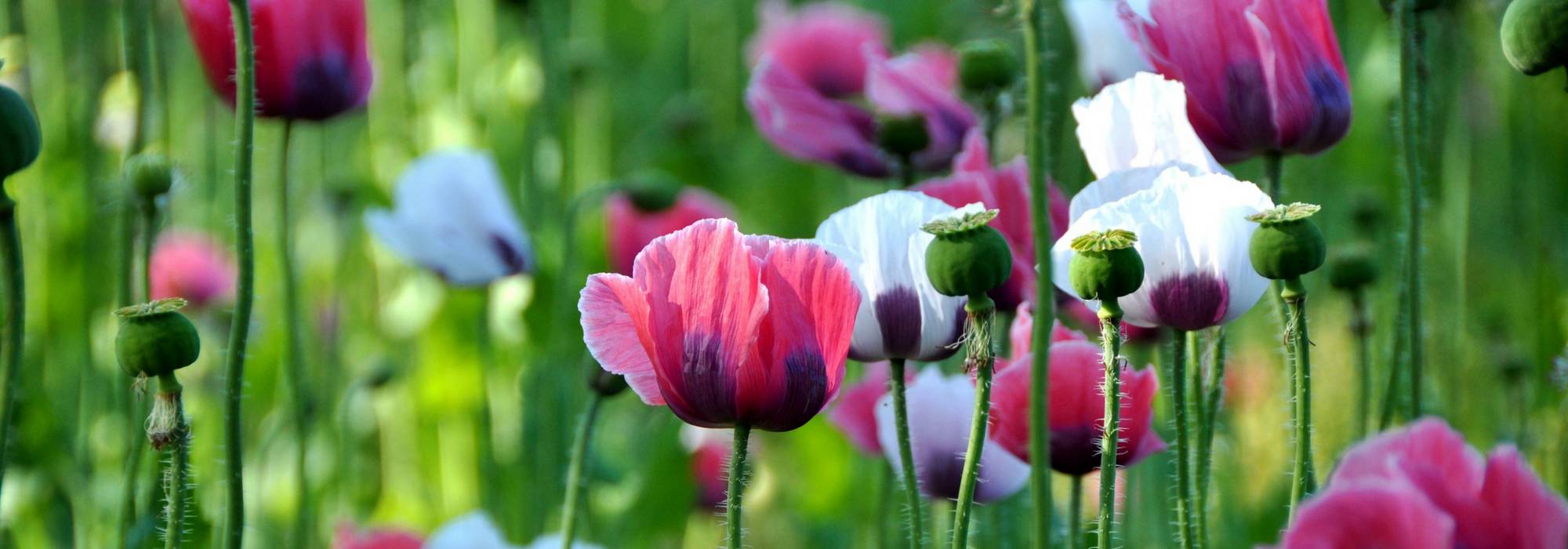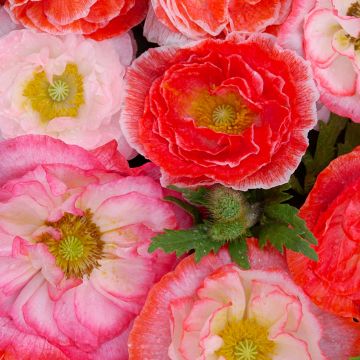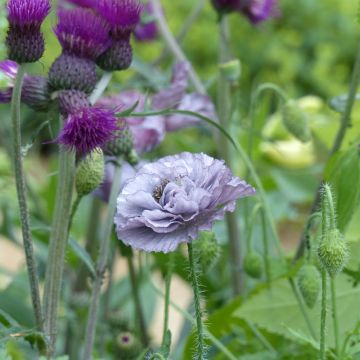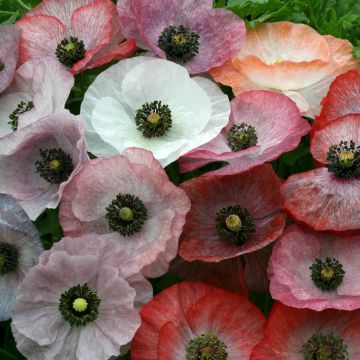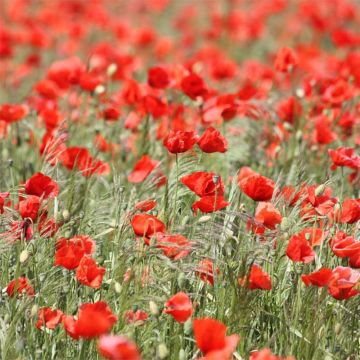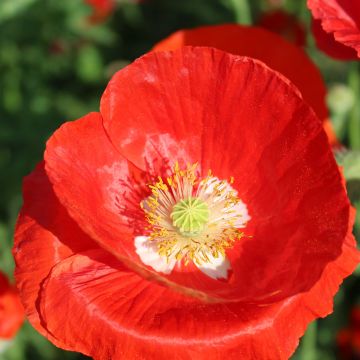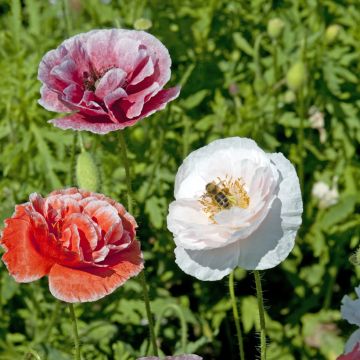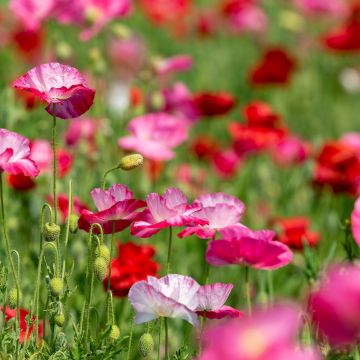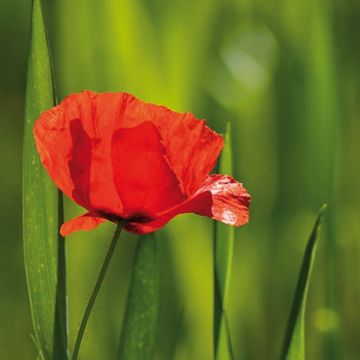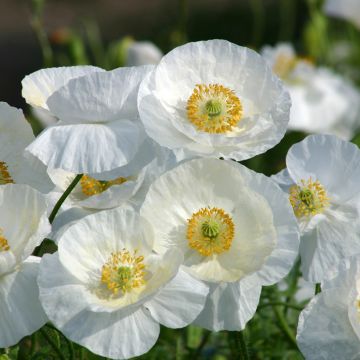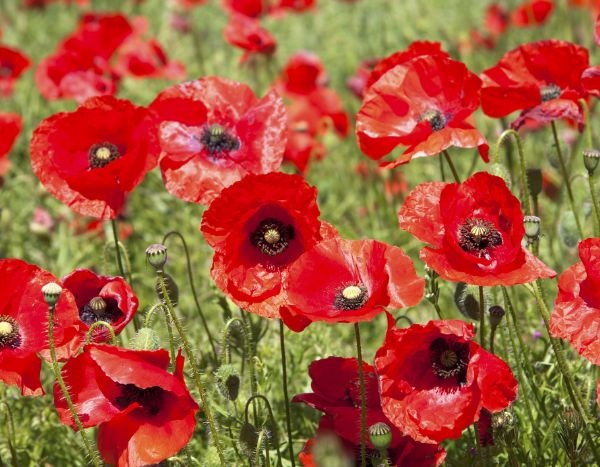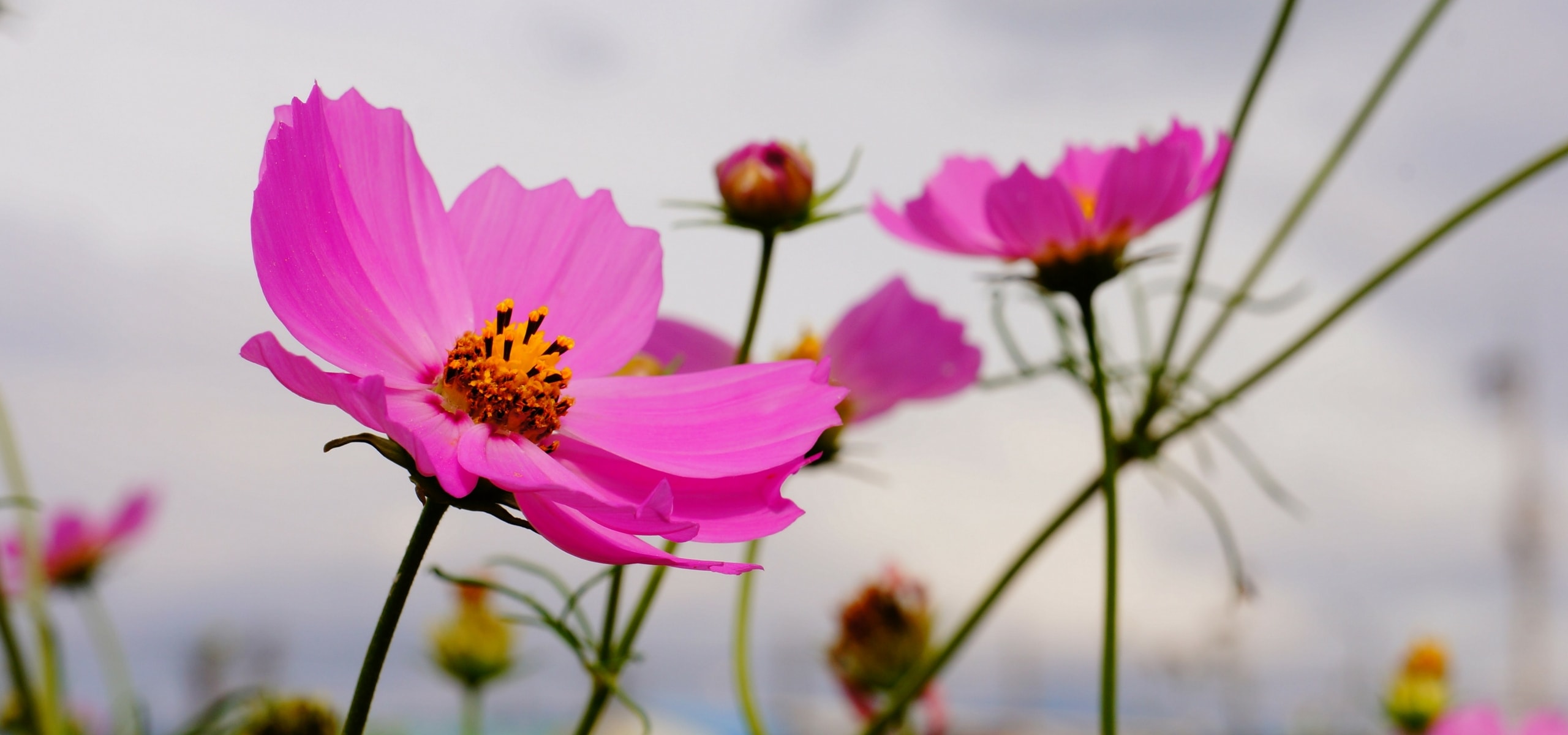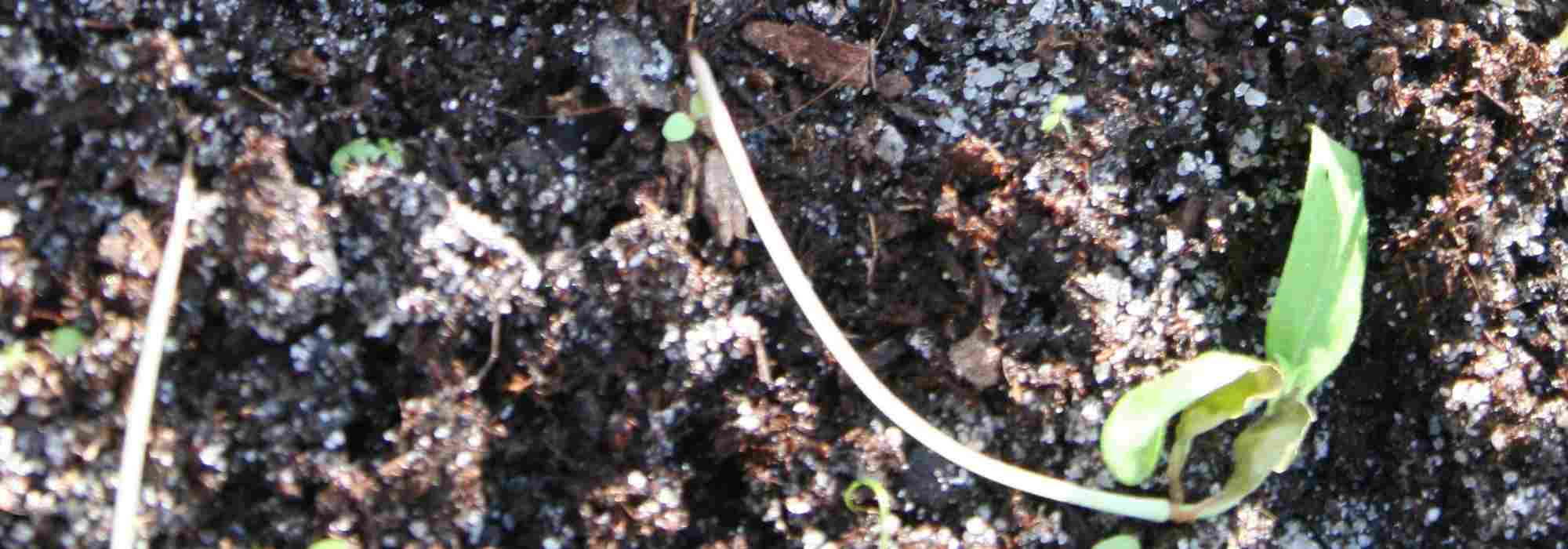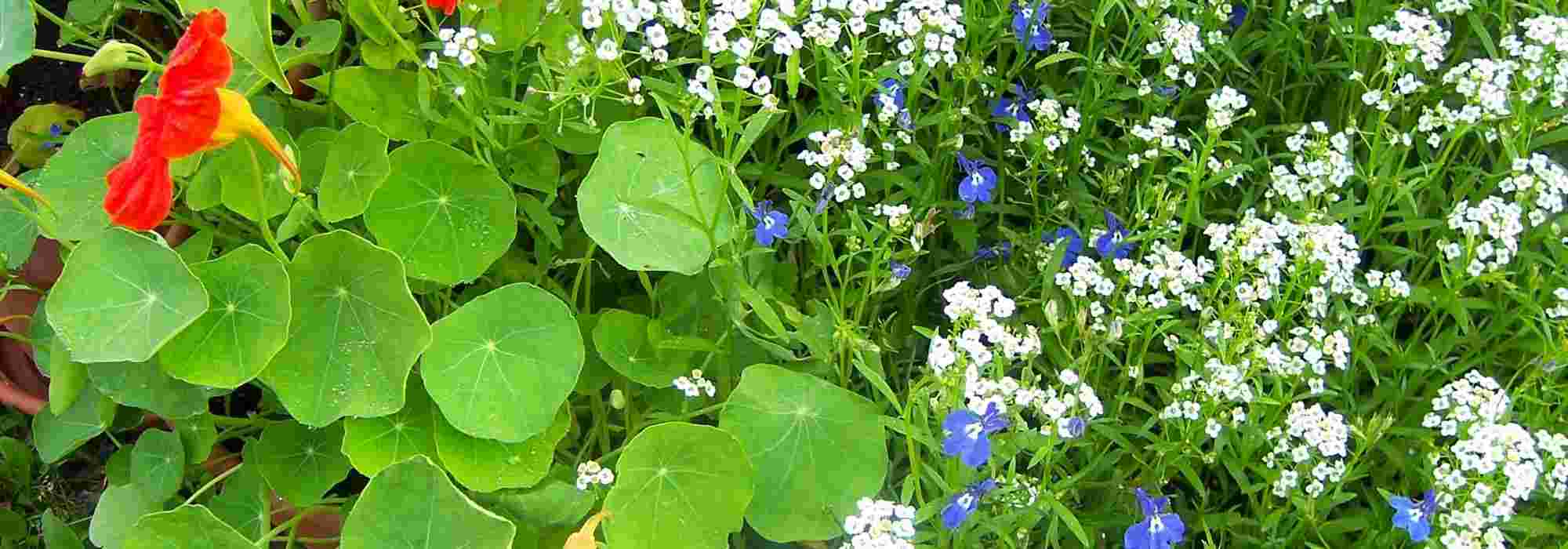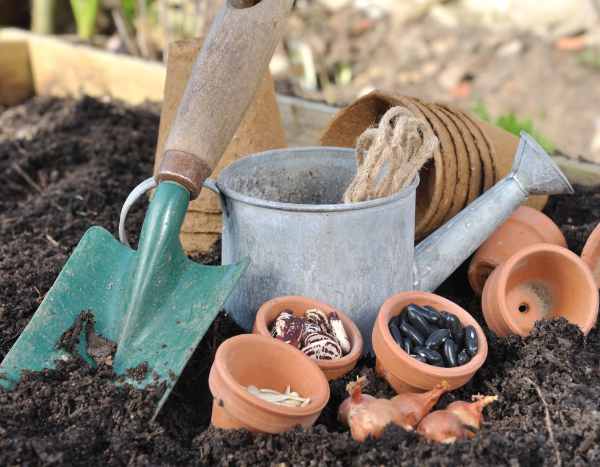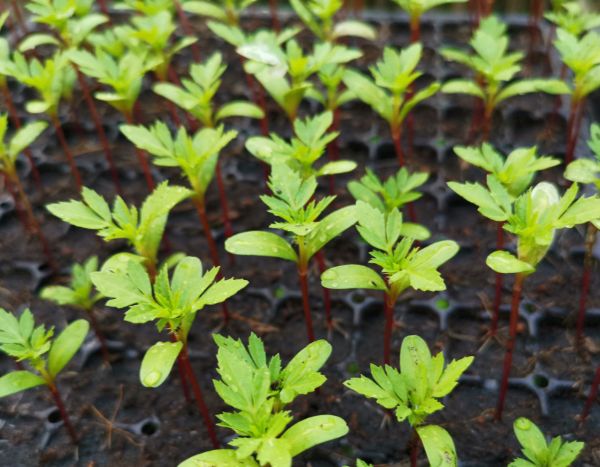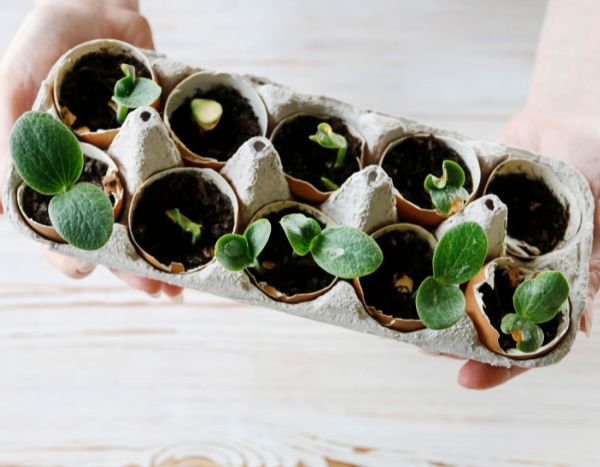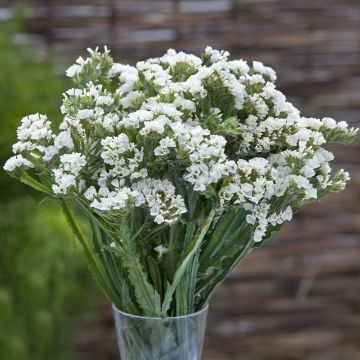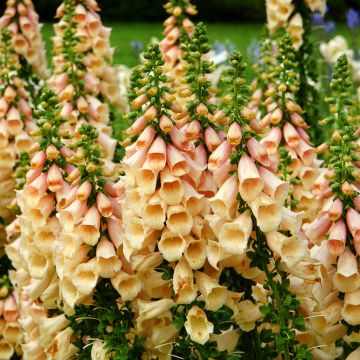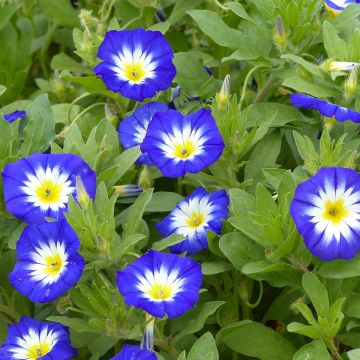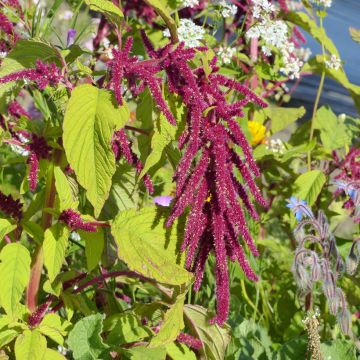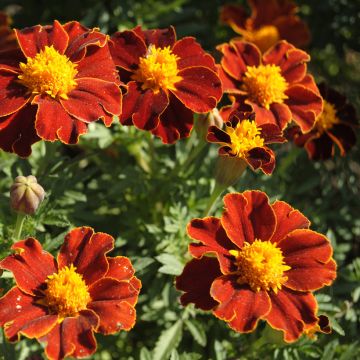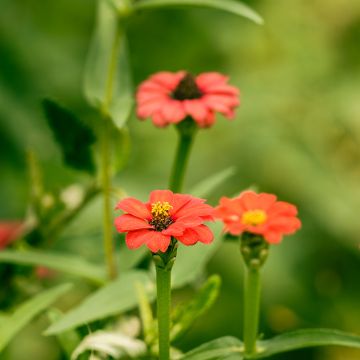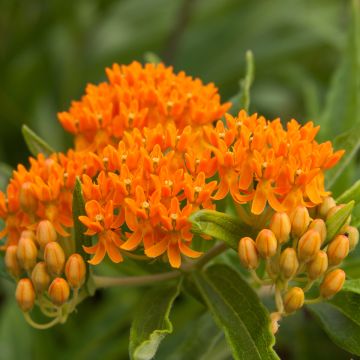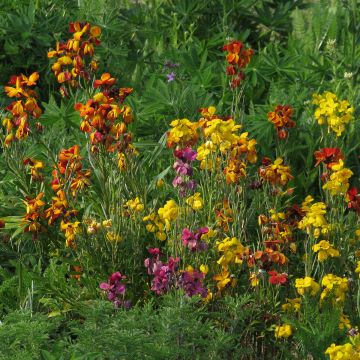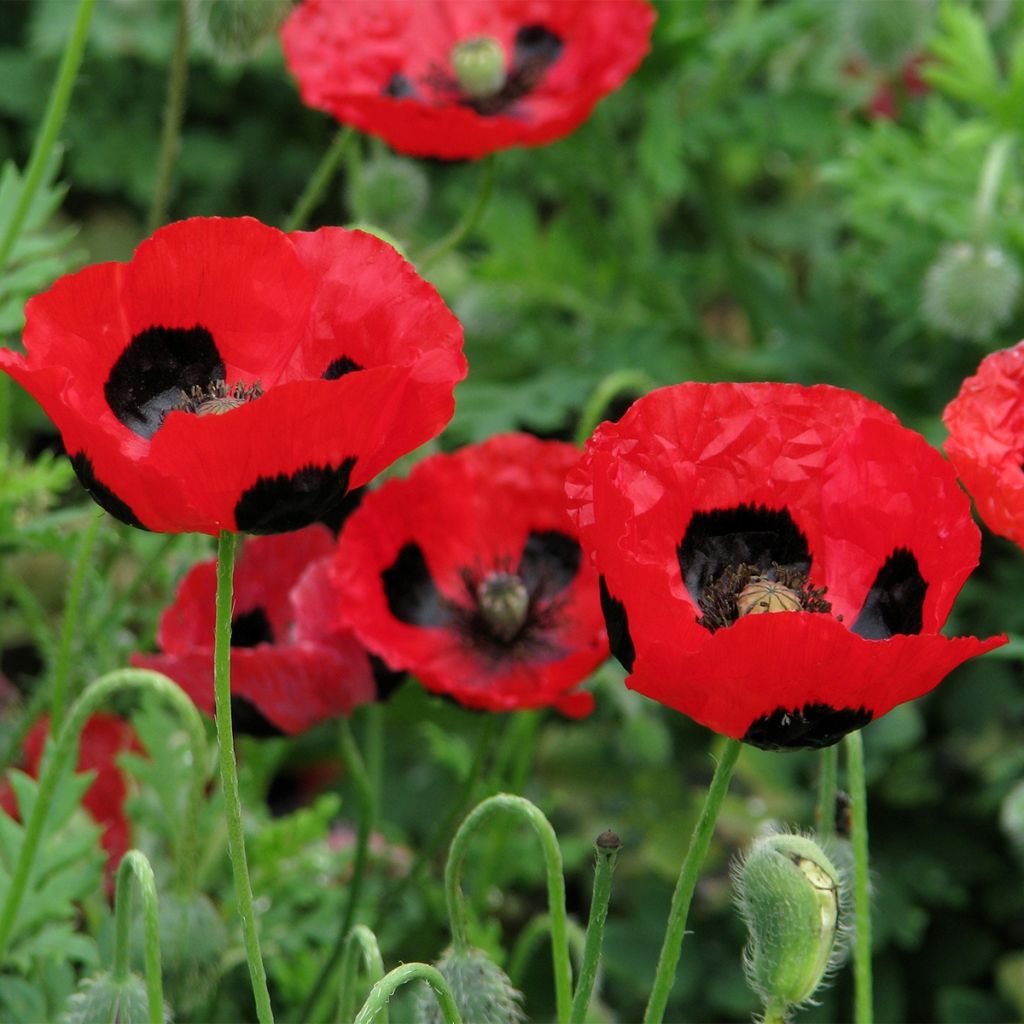

Graines de Coquelicot coccinelle - Papaver commutatum Ladybird
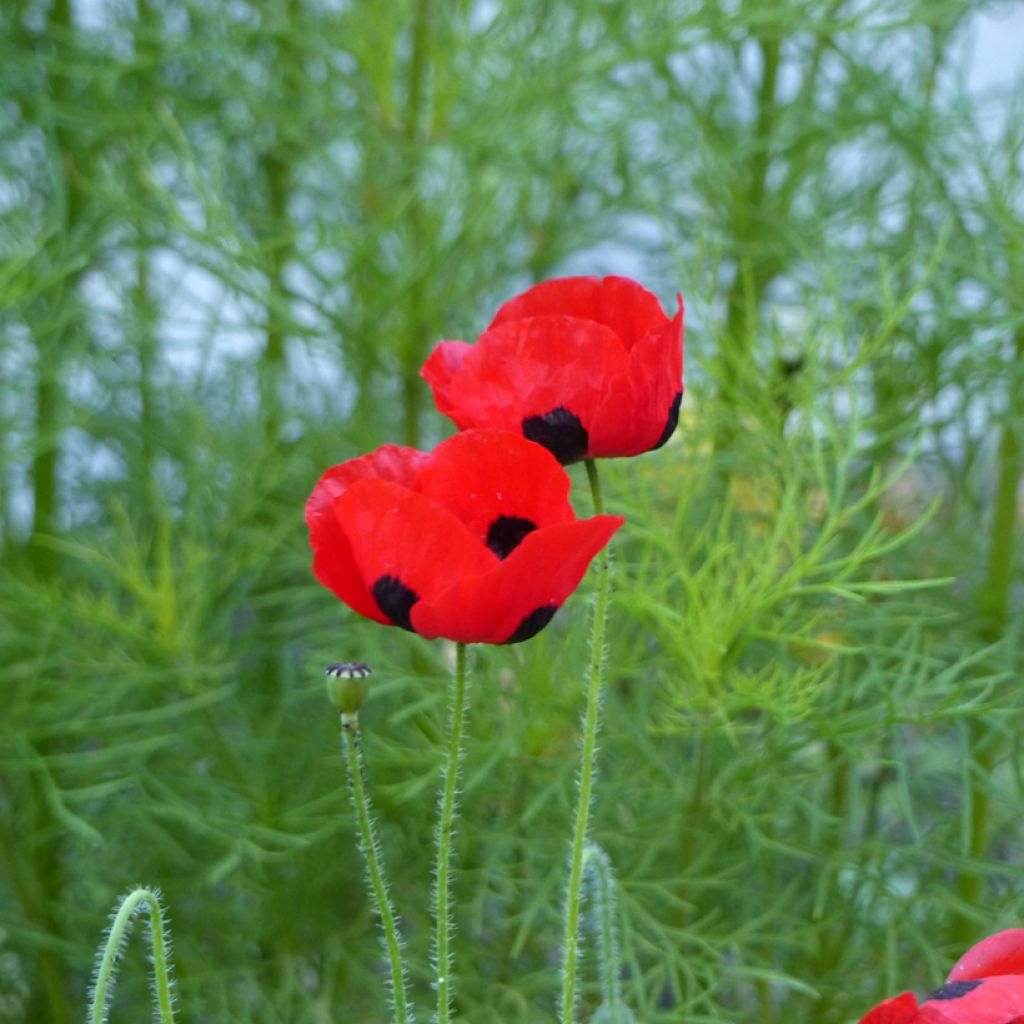

Ladybird poppy Seeds - Papaver commutatum Ladybird
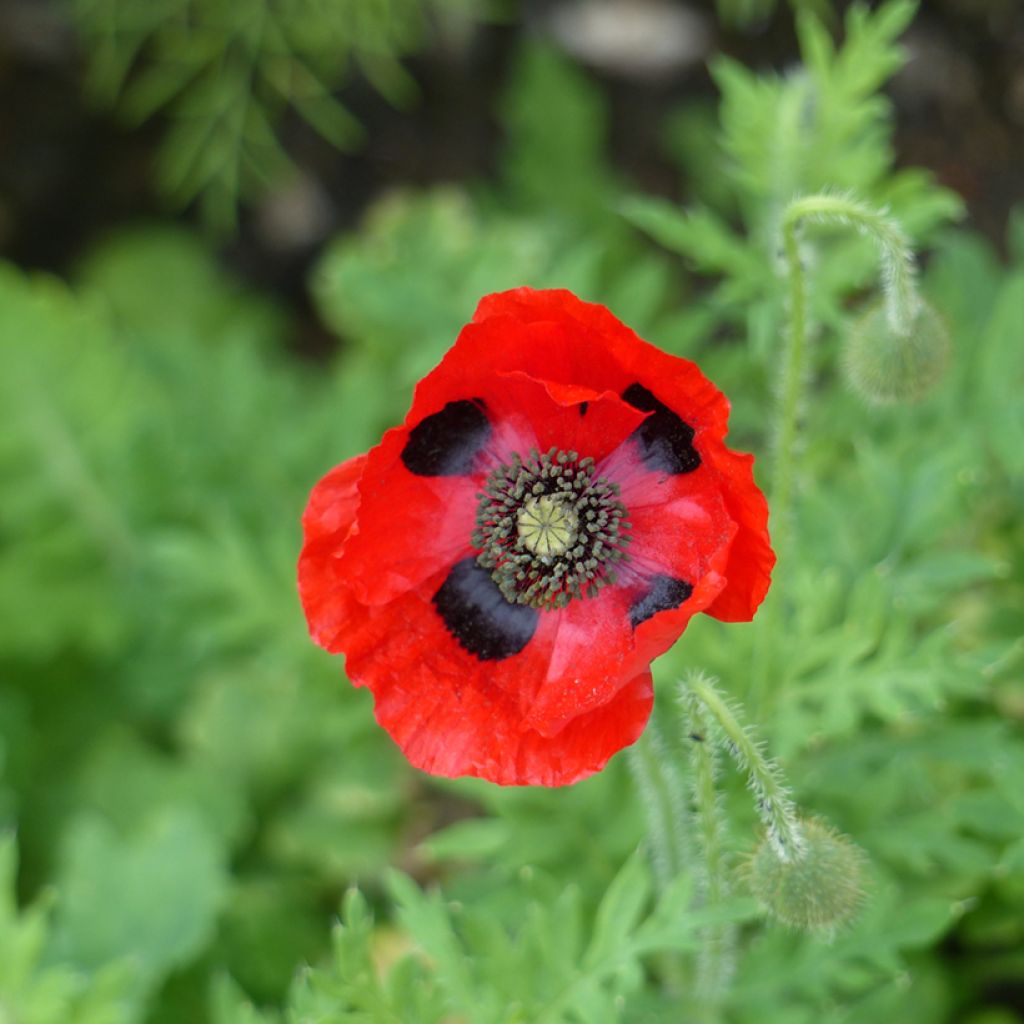

Ladybird poppy Seeds - Papaver commutatum Ladybird
Ladybird poppy Seeds - Papaver commutatum Ladybird
Papaver commutatum Ladybird
Ladybird Poppy
Very beautiful flowering, then plenty of seeds to harvest, if I feel like it.
Yves, 30/07/2019
Special offer!
Receive a €20 voucher for any order over €90 (excluding delivery costs, credit notes, and plastic-free options)!
1- Add your favorite plants to your cart.
2- Once you have reached €90, confirm your order (you can even choose the delivery date!).
3- As soon as your order is shipped, you will receive an email containing your voucher code, valid for 3 months (90 days).
Your voucher is unique and can only be used once, for any order with a minimum value of €20, excluding delivery costs.
Can be combined with other current offers, non-divisible and non-refundable.
Home or relay delivery (depending on size and destination)
Schedule delivery date,
and select date in basket
This plant carries a 6 months recovery warranty
More information
We guarantee the quality of our plants for a full growing cycle, and will replace at our expense any plant that fails to recover under normal climatic and planting conditions.
Does this plant fit my garden?
Set up your Plantfit profile →
Description
Simple and cheerful, the Papaver commutatum Lady Bird, also called ladybird poppy, is closely related to the common poppy of our countrysides. It distinguishes itself from the latter with its large, silky, intense bright red corollas with large, black central blotches. By staggering sowing every fortnight from February to July, you can have blooms non-stop from June to September appearing above a hairy, divided foliage. Planted in drifts, this annual plant makes quite an impression in the garden and self-seeds faithfully. Easy to grow, just direct sow in their final positions, in well-prepared soil.
Native to Asia Minor (Turkey, Iran, Caucasus), Papaver commutatum is an annual or biennial plant, and can even be an ephemeral perennial in very mild climates. The cultivar Lady Bird, still not very widespread, is a descendant of this species that belongs to the family Papaveraceae. It forms a clump of 45 cm in height and in width with a more well-branched habit than the common poppy. Its foliage is glaucous green, deeply cut and hairy. The flowers appear in summer, borne on hairy stems for a period of about three weeks. They are bowl-shaped, measuring up to 8 cm in diameter and are particularly shiny. Their intense red colouring is further accentuated by the texture of the petals, which reflects the light beautifully. The corolla is adorned with four black blotches, that are also shiny. The flowers give way to fruits which are capsules containing numerous seeds that the wind will scatter.
Plant the poppy Lady Bird in large groups in natural grasslands, or in the wilder areas of the garden. Planted in smaller numbers, it will bring out the blue flowers of perennial flax and tall white daisies. Its intense colour and the airiness of its foliage also goes very well with the more discreet plants of the vegetable garden. It is an annual that reseeds faithfully, springing up from the earth by surprise in the forgotten parts of the garden. Like cosmos, this plant has no equal when it comes to covering sunny embankments around new constructions and bright, open spaces between annuals or big, late flowering perennials such as sunflowers whose blooms take over later in the season. If you still want to make bouquets with these flowers, the stems should be cauterized where they have been cut, to prevent the flowers from fading during the day.
Ladybird poppy Seeds - Papaver commutatum Ladybird in pictures
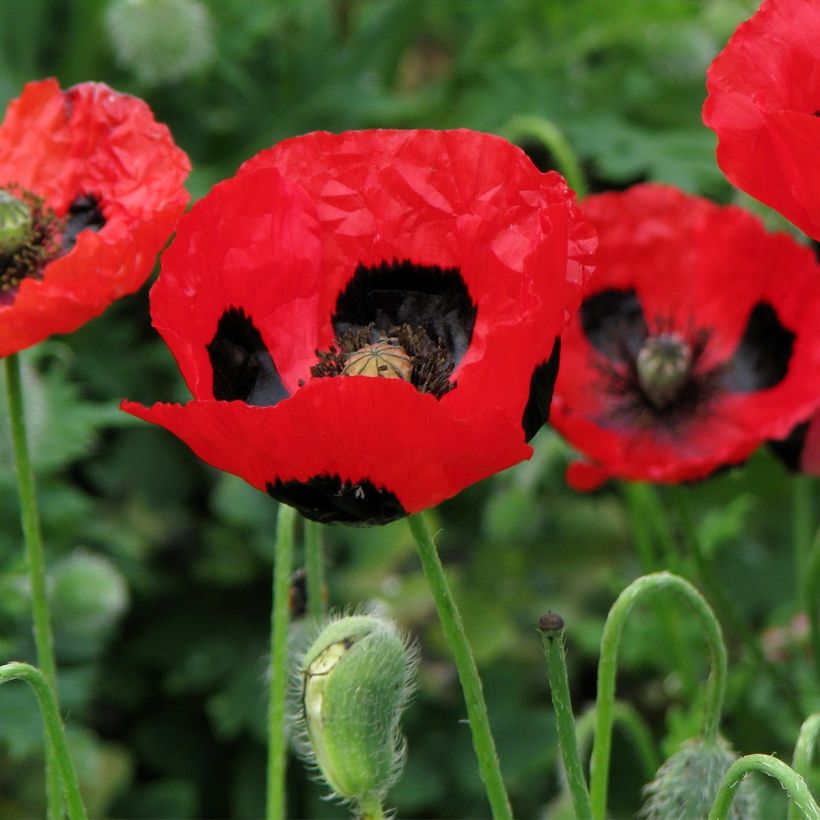

Flowering
Foliage
Plant habit
Botanical data
Papaver
commutatum
Ladybird
Papaveraceae
Ladybird Poppy
Cultivar or hybrid
Other Flanders Poppy seeds
View all →Planting and care
Sow poppy seeds directly outdoors in their final positions, in spring. Choose a location in full sun with fertile, well-drained soil that has been raked to a fine tilth. Sow the fine seeds just below the soil's surface, mixing them with sand or a special sowing soil in order to sow less densely. Water regularly, especially during dry periods. Germination usually takes 18-22 days.
When the poppy seedlings are sufficiently large enough to be handled, thin the seedlings out to 30 cm apart. They should not run out of water or food in the summer. They can be easily resown in the garden. Cut off spent flowers if you wish to avoid self-seeding.
Even if they prefer clay, calcareous soils, poppies are undemanding plants that adapt to most well-prepared soils. Their seeds retain their germinating power for a long time, and it is not uncommon for seedlings to emerge years after a 'failed' sowing, after having dug up the soil.
Important note: all poppies are toxic. However, seeds produced by the species P. somniferum and P. paeoniflorum can be used for general consumption. In general, the seeds are used in baking recipes (breads, cakes...).
Sowing period
Intended location
Planting & care advice
-
, onOrder confirmed
Reply from on Promesse de fleurs
Similar products
Haven't found what you were looking for?
Hardiness is the lowest winter temperature a plant can endure without suffering serious damage or even dying. However, hardiness is affected by location (a sheltered area, such as a patio), protection (winter cover) and soil type (hardiness is improved by well-drained soil).

Photo Sharing Terms & Conditions
In order to encourage gardeners to interact and share their experiences, Promesse de fleurs offers various media enabling content to be uploaded onto its Site - in particular via the ‘Photo sharing’ module.
The User agrees to refrain from:
- Posting any content that is illegal, prejudicial, insulting, racist, inciteful to hatred, revisionist, contrary to public decency, that infringes on privacy or on the privacy rights of third parties, in particular the publicity rights of persons and goods, intellectual property rights, or the right to privacy.
- Submitting content on behalf of a third party;
- Impersonate the identity of a third party and/or publish any personal information about a third party;
In general, the User undertakes to refrain from any unethical behaviour.
All Content (in particular text, comments, files, images, photos, videos, creative works, etc.), which may be subject to property or intellectual property rights, image or other private rights, shall remain the property of the User, subject to the limited rights granted by the terms of the licence granted by Promesse de fleurs as stated below. Users are at liberty to publish or not to publish such Content on the Site, notably via the ‘Photo Sharing’ facility, and accept that this Content shall be made public and freely accessible, notably on the Internet.
Users further acknowledge, undertake to have ,and guarantee that they hold all necessary rights and permissions to publish such material on the Site, in particular with regard to the legislation in force pertaining to any privacy, property, intellectual property, image, or contractual rights, or rights of any other nature. By publishing such Content on the Site, Users acknowledge accepting full liability as publishers of the Content within the meaning of the law, and grant Promesse de fleurs, free of charge, an inclusive, worldwide licence for the said Content for the entire duration of its publication, including all reproduction, representation, up/downloading, displaying, performing, transmission, and storage rights.
Users also grant permission for their name to be linked to the Content and accept that this link may not always be made available.
By engaging in posting material, Users consent to their Content becoming automatically accessible on the Internet, in particular on other sites and/or blogs and/or web pages of the Promesse de fleurs site, including in particular social pages and the Promesse de fleurs catalogue.
Users may secure the removal of entrusted content free of charge by issuing a simple request via our contact form.
The flowering period indicated on our website applies to countries and regions located in USDA zone 8 (France, the United Kingdom, Ireland, the Netherlands, etc.)
It will vary according to where you live:
- In zones 9 to 10 (Italy, Spain, Greece, etc.), flowering will occur about 2 to 4 weeks earlier.
- In zones 6 to 7 (Germany, Poland, Slovenia, and lower mountainous regions), flowering will be delayed by 2 to 3 weeks.
- In zone 5 (Central Europe, Scandinavia), blooming will be delayed by 3 to 5 weeks.
In temperate climates, pruning of spring-flowering shrubs (forsythia, spireas, etc.) should be done just after flowering.
Pruning of summer-flowering shrubs (Indian Lilac, Perovskia, etc.) can be done in winter or spring.
In cold regions as well as with frost-sensitive plants, avoid pruning too early when severe frosts may still occur.
The planting period indicated on our website applies to countries and regions located in USDA zone 8 (France, United Kingdom, Ireland, Netherlands).
It will vary according to where you live:
- In Mediterranean zones (Marseille, Madrid, Milan, etc.), autumn and winter are the best planting periods.
- In continental zones (Strasbourg, Munich, Vienna, etc.), delay planting by 2 to 3 weeks in spring and bring it forward by 2 to 4 weeks in autumn.
- In mountainous regions (the Alps, Pyrenees, Carpathians, etc.), it is best to plant in late spring (May-June) or late summer (August-September).
The harvesting period indicated on our website applies to countries and regions in USDA zone 8 (France, England, Ireland, the Netherlands).
In colder areas (Scandinavia, Poland, Austria...) fruit and vegetable harvests are likely to be delayed by 3-4 weeks.
In warmer areas (Italy, Spain, Greece, etc.), harvesting will probably take place earlier, depending on weather conditions.
The sowing periods indicated on our website apply to countries and regions within USDA Zone 8 (France, UK, Ireland, Netherlands).
In colder areas (Scandinavia, Poland, Austria...), delay any outdoor sowing by 3-4 weeks, or sow under glass.
In warmer climes (Italy, Spain, Greece, etc.), bring outdoor sowing forward by a few weeks.






























